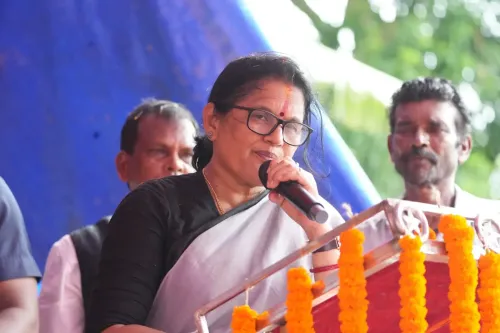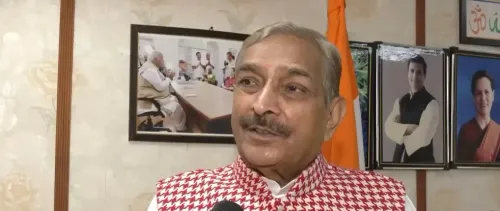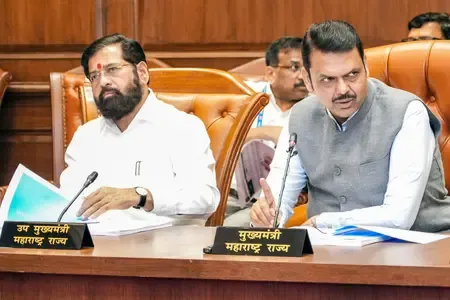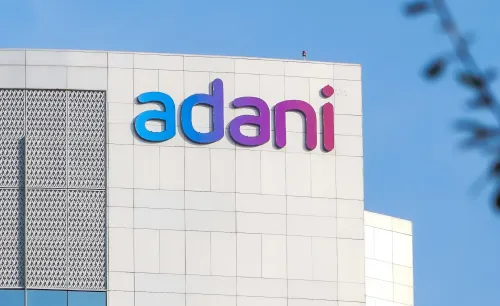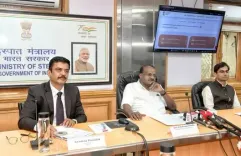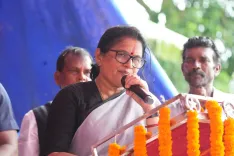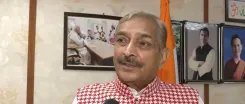How Can Delhi CM Rekha Gupta Reduce Government Litigation?
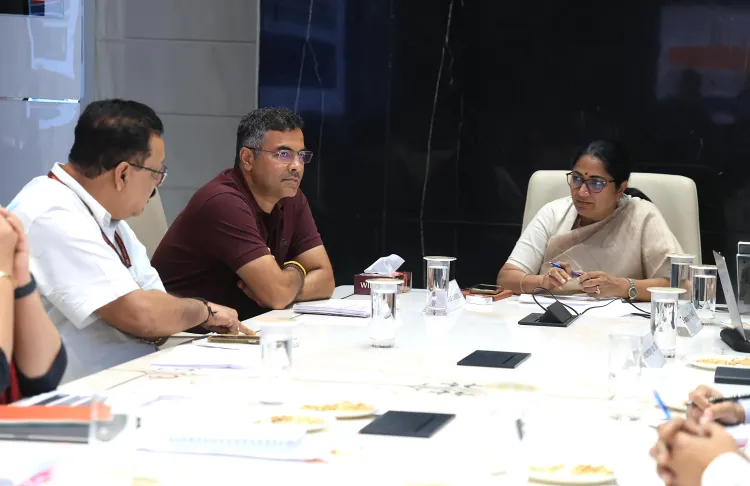
Synopsis
Key Takeaways
- Formation of expert panels to reduce unnecessary government litigation.
- Approximately 4,000 to 5,000 pending cases involving the Delhi government.
- Need for systemic solutions for quicker case management.
- Three new court complexes under construction to alleviate infrastructure issues.
- Focus on legal modernisation and updated laws.
New Delhi, July 18 (NationPress) Delhi Chief Minister Rekha Gupta has initiated the creation of expert panels formed by retired bureaucrats and specialists to evaluate the nature of pending court cases involving the government and to propose methods for reducing unnecessary litigation.
Highlighting the existence of around 4,000 to 5,000 pending cases related to the Delhi government across various courts and tribunals, the Chief Minister underscored the critical necessity to streamline government litigation and alleviate the judiciary's workload.
This directive was issued during a meeting led by her with the Department of Law, Justice and Legislative Affairs. Attendees included Delhi Cabinet Minister Kapil Mishra, senior departmental officials, and legal experts.
The Chief Minister indicated that the proposed panels would also help develop systemic solutions for faster resolutions and improved case management.
It was observed that, in contrast to several other states, Delhi currently lacks a dedicated panel of advocates in the Supreme Court.
Recognizing the significance of legal representation at the highest level, the CM directed the Law Department to establish a special panel of Senior Advocates with defined terms to represent the government in crucial matters before the Delhi High Court, Supreme Court, and various tribunals.
Additionally, the CM instructed the Law Department to look into the formation of a panel for the Delhi government in the Supreme Court.
During the meeting, concerns regarding the shortage of sanctioned judicial officers and insufficient office space were raised.
The CM noted that three new court complexes — in Shastri Park, Karkardooma, and Rohini — are currently under construction, which will help mitigate both personnel and infrastructure shortages once completed.
CM Gupta urged official agencies to ensure the prompt and efficient completion of these ongoing infrastructure projects.
In addition to addressing operational challenges, the Chief Minister emphasized the importance of legal modernisation.
She proposed considering the enactment of new laws that align with contemporary requirements and the repeal of pre-constitution laws, including the Punjab Courts Act, Court Fees Act, and Suit Valuation Act.
The CM further pointed out the absence of regular reviews for Oath Commissioners and instructed the Law Department to take swift corrective measures in updating and auditing appointment records.
On the topic of dispute resolution, she acknowledged the contributions of the Delhi Dispute Resolution Society (DDRS), an autonomous body under the Law Department that facilitates Alternative Dispute Resolution (ADR) mechanisms.
The CM reaffirmed her dedication to transforming Delhi’s legal and judicial frameworks to be more citizen-centric, technology-driven, and in line with modern governance standards.

